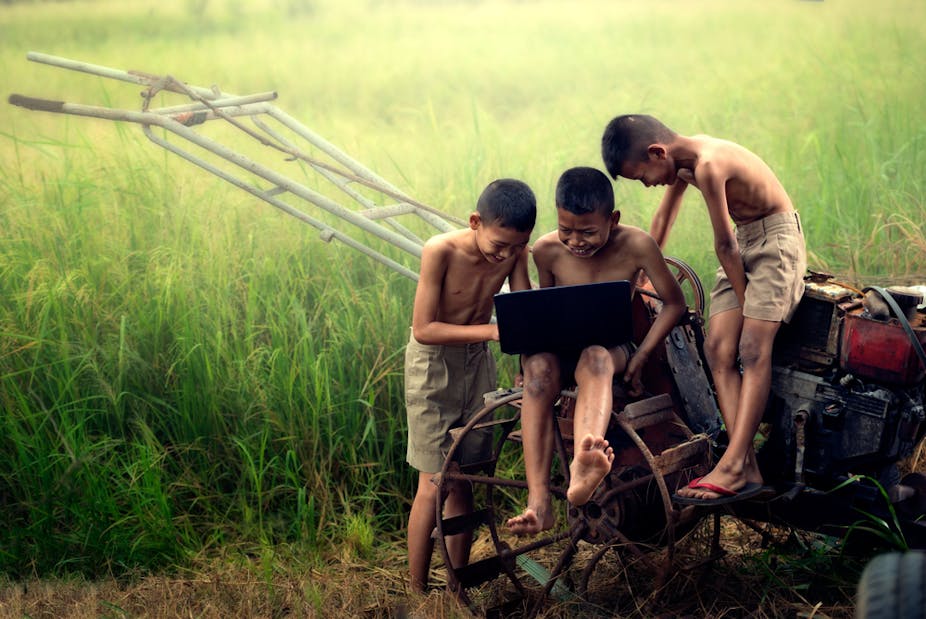At the height of the European refugee crisis, volunteers delivered goods to makeshift camps in Calais, set up soup kitchens, and helped recent arrivals on the Greek island of Lesvos. But such grassroots humanitarianism does not always play out on Europe’s doorstep. “Citizen aid” – whereby driven individuals set up their own, small-scale aid projects – is taking off in the Global South, too.
The number of these micro-organisations has risen dramatically in the US, the UK and other European countries in the last ten years. Many, but not all of them, are registered as charities. They are typically run by people with no previous experience in development, and their projects often focus on youth, education, disability or health support. Despite, or perhaps because of their small scale and apparent non-professionalism, many leverage enthusiastic support through their social networks.
Because of the scarcity of quantitative data, we do not know the exact size of these private funding streams, but it may be substantial. So are we witnessing a new era of development assistance, one that is not dominated by the “big players”, such as international NGOs or large private foundations? Is citizen aid the future of development, as ordinary citizens take matters into their own hands? And what, if anything, makes citizen aid different from more established forms of development?
Grassroots
From what we know so far, a hallmark of citizen aid is its grassroots, decentralised nature. That means that no higher-level institution, such as a government body or charity, is responsible for making policy or disbursing funds. Instead, citizen aid is carried out by individuals, who are part of, or come across a community or particular cause while travelling.
They often decide on the spur of the moment to get involved. For example, a Swedish tourist, visiting the temples of Angkor Wat in Cambodia, might get talking with her tour guide. As a result, she might decide to support their scheme to provide bicycles to local kids, enabling them to attend high school. An example is the Ponheary Ly Foundation, which aims to get more Cambodian children into education.

These initiatives are often in flux. In some cases, a one-off donation is all that happens; in others, the Swedish tourist might raise awareness and funds among their friends, family and colleagues, and in due course return to Cambodia to offer their time and assistance. Over time, some initiatives, such as the Eco Soap Bank, which offers poor communities a safe and ecologically sound way to wash, grow large, and become established NGOs. Others, such as Touch A Life, which provides weekly meals to poor neighbourhoods, thrive on their intimate nature and remain small, involving only a few volunteers or staff on the ground. Yet others still are short-lived, and dissolve when the founder runs out of time or money to sustain the project.
A key feature that sets these projects apart from “mainstream” development practice is the personal relationships at their heart. They involve committed and sometimes charismatic founders, including, for example, a European and a Cambodian who share a vision for a project, such as an after-school club for children from poor families. The personal connections that are made between founders and those they support, and the immediate, visible rewards of their efforts, are key motivators for those doing citizen aid.
This also holds for their supporters overseas, who feel that they know where their money is going, and the individuals who benefit. Such closeness is not always available for “professional” aid workers, who may direct large budgets, but lack contact with the people at the receiving end. Citizen aid also offers scope for agency, and attracts those with an entrepreneurial streak – a reason why such initiatives have also been dubbed “DIY foreign aid”.
So is citizen aid the new development? It is certainly growing in importance. It offers ordinary citizens the possibility to intervene, when world politics can make them feel angry but unable to make a difference. Rather than dismissing it outright as short-lived amateurism, citizen aid may be one to watch.

